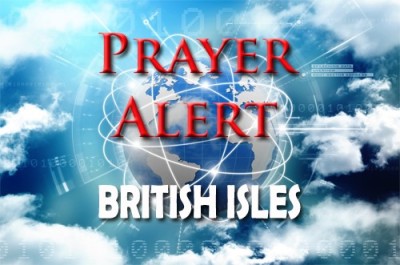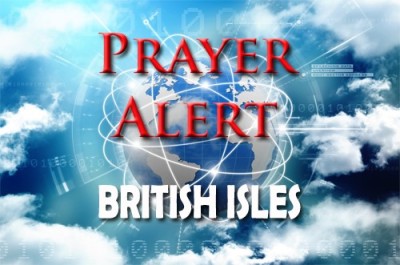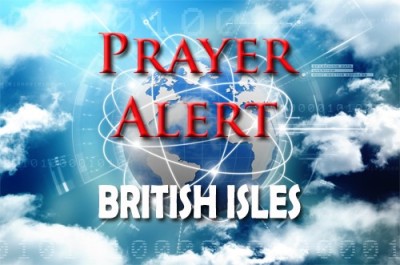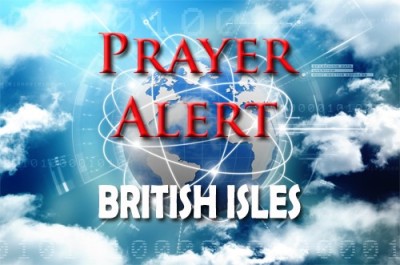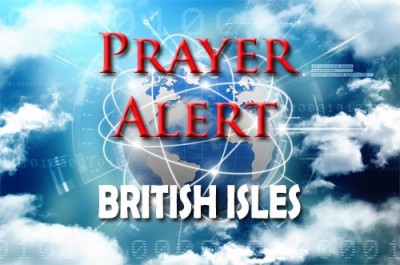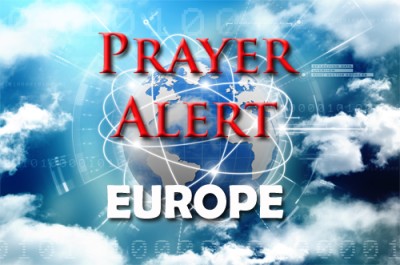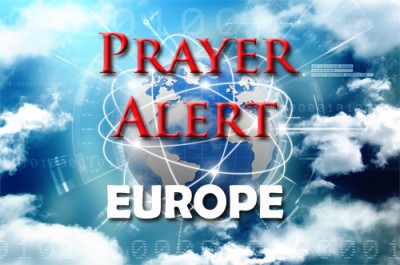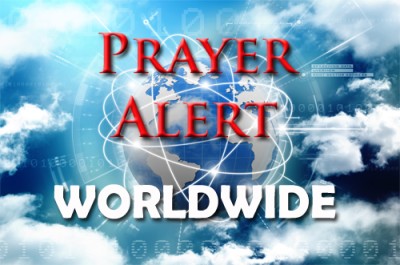A group of Christians in Hampshire who took over the local tourist information office when it was in danger of being closed say it has become a valuable way of engaging people with faith. Their organiser said, ‘Tourist information centres everywhere are closing because everything is online. But older people prefer to go to a tourist information centre to pick up a leaflet etc. When we took the centre over from the council they were delighted. We open on reduced hours, giving out leaflets and selling books to pay the bills. It's now quite a ministry. People come in asking questions like where are the toilets, or when does the next bus go? Then they start coming up with issues that as Christians we feel qualified to signpost them in the right direction’.
Northern Ireland police endangered
10 Aug 2023A member of the public made a freedom of information (FoI) request to the police, ‘Could you provide the number of officers at each rank and number of staff at each grade?’ What they received was not only a numerical table but, inadvertently, a huge Excel spreadsheet called ‘the source data, which should never have been released for public scrutiny on an FoI website. It was removed after 2½ - 3 hours once police became aware of it. Each line contains information from the top of the force down - surname and first initial, their rank, grade, where they are based and the unit they work in; including sensitive areas of surveillance and intelligence. The sensitive information exposes many in nationalist communities who were taking great care to keep who they work for a secret, in some cases even from friends and family. The scale of this error is enormous; the consequences cannot be evaluated. It is probably the worst data breach in the organisation's history.
Continuing Healthcare breaking down
10 Aug 2023Despite recent increased spending on Continuing Healthcare, staff shortages and rising prices mean people with complex medical needs are lacking the help they need. Sometimes family members are so exhausted from providing continual care that they’re concerned over their relative’s safety. Declan is one of the 16,000 people needing Continuing Healthcare. He has severe, progressive muscle wasting and cannot move unassisted. He requires a ventilator to breathe and has chronic heart and respiratory failure. The care he needs to be able to live at his family home should be met by NHS’s Continuing Healthcare scheme that enables people with high complex needs to live outside of the hospital. Declan is entitled to 24/7 support by experienced care workers plus extra help mornings and bedtime. His mother has been asking for care overnight and during her working hours - but repeatedly faces shortfalls in meeting Declan’s needs.
Importing Chinese cars raises espionage fears
10 Aug 2023British lawmakers warn that imported technology embedded in Chinese electric vehicles could be used to harvest information on drivers. With China leading the global EV market, cheaper Chinese vehicles are expected to dominate UK automotive sales. A cross-party group of MPs have expressed concern to the government that Britain is on the verge of handing control of critical infrastructure to Beijing, with all of the ‘associated security risks.’ An unnamed senior government official said that if it is manufactured in China, how certain can you be that it won’t be a vehicle for collecting intel and data? Why have electric vehicles manufactured by countries that already spy using technology? Why wouldn’t they do the same here? The UK already suspects China’s technology imports are a security risk and barred Huawei from the 5G network in 2020, ordering all equipment and services to be removed by the end of 2023.
Silent prayer near abortion facility
10 Aug 2023Adam Smith-Connor has pleaded not guilty to charges related to breaking a local ‘buffer zone’ around an abortion clinic and praying silently outside the medical facility. He was approached by police outside the clinic earlier this year. He thought he would not be prosecuted, as the statutory time-limit for pressing charges had elapsed. At his hearing on 9 August he said, ‘We are standing in the nation of the Magna Carta, the nation which has championed democracy and freedom. We have a history of upholding human rights we can be proud of and a respect for freedom that I fought to uphold when I served this country for twenty years in the army reserves, including in Afghanistan. Yet here I stand before you, being prosecuted for a thought crime.’ His legal team contend that freedom of thought is protected absolutely through the Human Rights Act and therefore, the local council has no power to prohibit silent prayer.
Russia: prayer needs
10 Aug 2023The majority of the world looks on with disbelief at Russia’s 17 months of ‘battle for justice’, and Russians are tired. Youths are fleeing, the economy falters, loved ones risk their lives, and they are tired of the lack of peace. Many are familiar with Orthodox Christianity, but they are non-practising. They are not familiar with the true stability and peace only found in Jesus. 17.7 million Russians don’t know who Jesus is. In their deep war-torn weariness, Russia’s 143 million people need Jesus to be their ultimate place of rest and their source of true peace. Putin’s anti-terrorism laws ban Christians from preaching outside a church building. Evangelism in homes or online is prohibited. Pastors and missionaries trained outside Russia must attend additional state-approved education. Bible teachers are needed to provide sound doctrine. Only God, manifested through the Body of Christ, can bring the hope and deliverance this nation seeks.
Ukraine: prayer needs
10 Aug 2023The devastation wrought by Russia’s invasion is heartbreaking, and the atrocities committed are galling. Millions of Ukrainians have been displaced. Tens of thousands have been killed. When the conflict ends, rebuilding will take years, or even decades. Even more complicated will be the healing of trauma experienced and, hopefully, an eventual reconciliation with its neighbour. Pray for the intervention of the God who makes wars cease to the ends of the earth and who breaks the bow and shatters the spear (Psalm 46:9). Pray Psalm 10:17-18 over Ukraine – that the Lord will hear the desire of the afflicted, encourage them, and listen to their cries. Pray for wisdom from above, and divine fortitude for Ukraine’s leaders and its people. Ukraine’s rich Christian heritage began in the Slavic world in Kyiv 1,000 years ago. Churches suffered greatly in the Soviet era. Next there was hostility from the Orthodox Church for other expressions of Christianity. Evangelicals have emerged from many years of persecution with larger numbers and stronger faith.
Brazil: Amazon summit of rainforest nations
10 Aug 2023From 7 to 9 August, eight Amazonian nations met in Brazil hoping to agree on future strategies to protect the rainforest while sustainably developing the region. President Lula called this summit for the eight South American countries sharing a slice of the Amazon. It is the first time in 45 years that there has been a meeting to ensure a regional response to combat deforestation, crime and climate change. Three days before the event, a pre-summit meeting of civil society representatives agreed on an alliance to combat deforestation, but each country will pursue its own conservation goals when the heads of state discuss and make decisions. President Lula said that previous meetings were just talk, talk, talk, and nothing happened, and this meeting is the first great opportunity for people to show the world what they want to do. Experts and conservationists have hailed the event as a turning point for the future of the Amazon rainforest. See also
